Falkland War. Act on Option "B"!
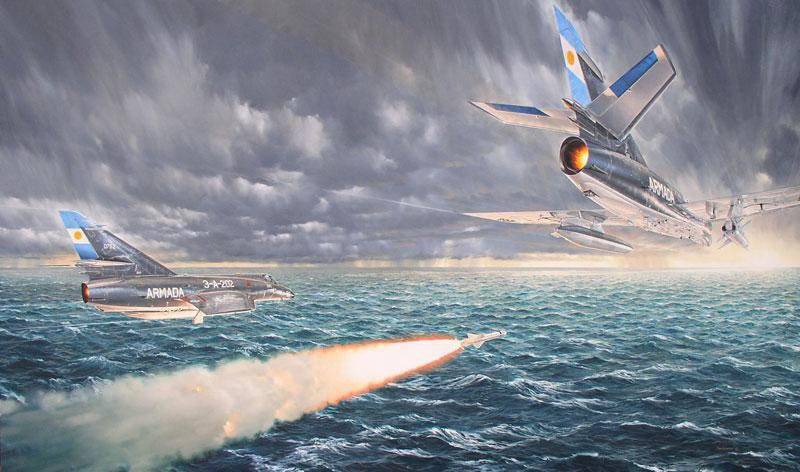
History does not know the subjunctive mood - the events that have occurred are firmly imprinted in the memory and give a very specific historical result.
Despite the cruel losses, Her Majesty’s fleet broke through to the Falkland Islands, returning distant lands to the jurisdiction of the British crown. The old lion showed the whole world that he still had fangs.
Argentina suffered a deafening defeat, which was the last blow for the government of Leopoldo Galtieri. The heightened crisis and mass discontent with the outcome of the “small victorious war” led to drastic political transformations inside Argentina.
Well, politics is a fickle thing, and national pride is eternal. Despite losing the war, the Argentines generously honored their heroes - sea pilots aviation managed to damage a third of the ships of the British squadron! It would seem, a little more and ...
Alternative history? Why not.
If you do not indulge in naive dreams of blasters and combat orbital stations, the Falklands War appears to be an incomprehensible set of accidents, each of which could completely change the course of hostilities and have a great effect on the results of the conflict.
- Marshal of the Royal Air Force Lord Craig
The fact that 80% Argentine bombs and anti-ship missiles did not work in a regular way is not surprising. The reliability of fuses has always been a sore subject for ammunition developers, and 30 years of storage and an unplanned dumping trajectory (Argentines attacked ships with a flying flight) finally ruined the hope of the effectiveness of missile-bomb strikes.
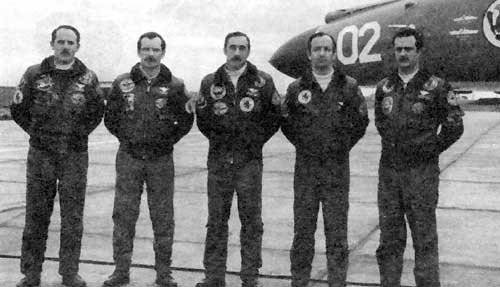
With non-explosive bombs, everything is clear - but what would happen if Argentine footballers bother to lengthen the airport runway in the Falklands, preparing a strip for receiving combat Daggers and Skyhawks? This is exactly what the British were afraid of - in this case the flight time would be sharply reduced, the intensity and effectiveness of air attacks would increase. The Argentines would not have to overload the aircraft with fuel and use air tankers (in reality, the Argentine Air Force had the entire 1 operational tanker KS-130, which severely limited the frequency of strikes and the number of strike groups).
The length of the original Portley concrete was 4000 feet (approx. 1200 m). Argentina had all the technical capabilities and almost a month of free time to carry out construction work, but no action was taken.
And what would the disputed islands be called now - Falkland or Malvinas? - get the Argentines on time all the 14 ordered by them "Super-Etendarov" and 28 anti-ship missiles "Exochet"?
It is such a party weapons: 14 carrier aircraft, 28 RCC, spare parts, Atar engines 8К50 and all related equipment for retrofitting aviation of the Argentine Navy was ordered in France in 1979 year. The contract was paid in specie - dangerous “toys” cost Argentina 160 million dollars.
The Argentines would be late with the war for at least a year, and the British would be able to know the power of modern rocket weapons.
In reality, it turned out differently - the start of hostilities in the South Atlantic entailed an immediate UN Directive and an international embargo on the supply of weapons to Argentina. By April, 1982, the Argentines managed to get only six fighter-bombers "Super-Etandar" (one is not capable due to technical problems and lack of spare parts), as well as five air-launched anti-ship missiles AM.39 Exocet.
But even this modest set was enough to cause an epidemic of diarrhea aboard Her Majesty’s ships. The air defense capabilities of the British squadron were barely enough to repel the attacks of Skywalk subsonic attack aircraft, and modern missiles were a special threat to the British.
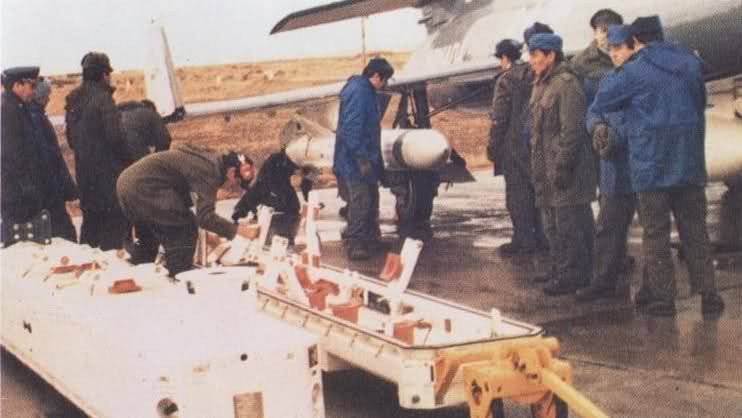
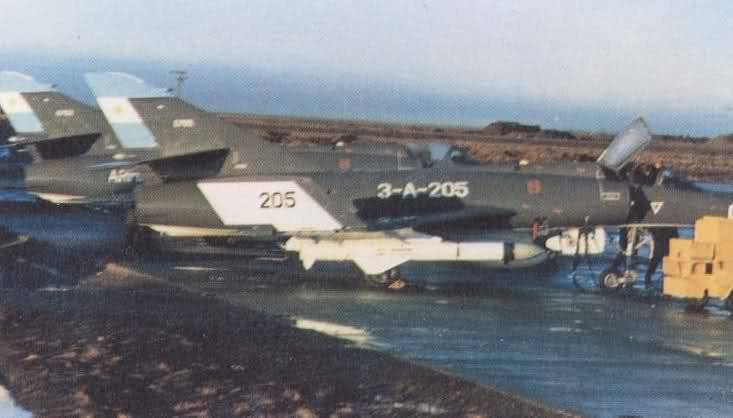
Five shots - two corpses. In the waves of the South Atlantic hiding the destroyer Sheffield and the ersatz aircraft carrier Atlantic Conveyor. By the criterion of "efficiency" pilots of the Argentine Navy surpassed only Gavril Princip with his revolver.
It is not difficult to guess how the British seamen would have danced if 5 flew more of such missiles at them. However, oddly enough, the British General Staff also did not sit still and carefully worked through this situation.
Operation Mikado
Aware of the threat posed by the rocket-carrying aviation of the Argentine Navy, the British command seriously considered the possibility of expanding the combat zone and conducting operations on the island of Tierra del Fuego.
By itself, this cold and wind-blown piece of land was of little interest to the British. The only significant object is the Rio Grande air base, the closest to the Falklands base is the Argentine aviation. It was from here that the Dagghers and Skyhawks went up to battle, and the formidable Super-Etandars were based here and a set of anti-ship missiles was stored.
At the beginning of the 1980s, Her Majesty’s fleet had not yet received the Tomahawk SLCM. At that time, the British had neither long-range naval artillery, nor operational-tactical missile systems, or any other remote means suitable for attacking an Argentinean airbase. “Point” bombing strikes using Vulcan bombers were considered unnecessarily risky and ineffective.
There was only one possibility - to carry out the attack "manually" using SAS (Special Air Service) special forces. The plan of the operation, which received the code name "Mikado", looked as follows:
A couple of C-130 “Hercules” transporters with 50-55 expeditionary group of special forces, with weapons, explosives, provisions and all necessary equipment are raised from the air base on Ascension Island (equatorial Atlantic) and heading for the South.
Transport vehicles will need 3-4 refueling to get to Tierra del Fuego, then successfully masquerading as Argentine C-130 (similar machines were used by the Argentine Air Force for daily cargo delivery to Falklands), Hercules boldly heading towards AB Rio Grande.
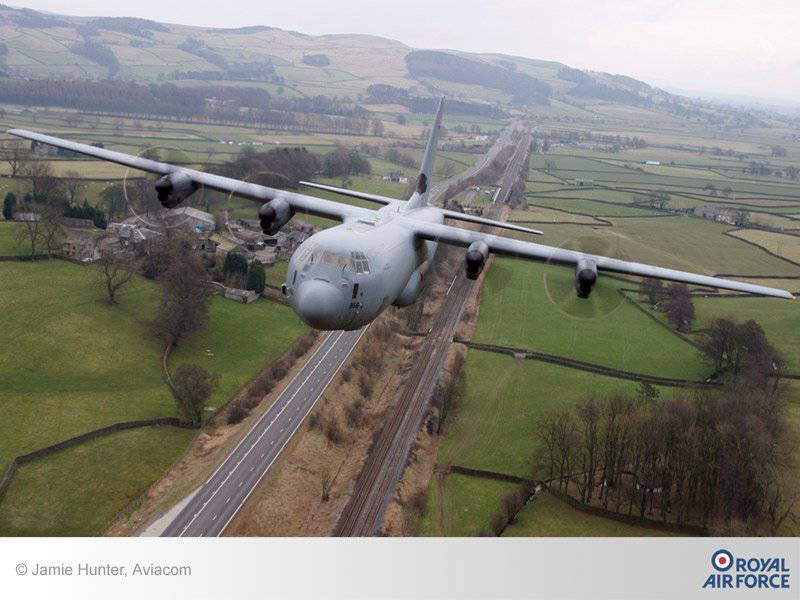
Taking advantage of the general turmoil, the transport workers land on the runway of the airbase: from the belly of the Trojan horses lash the flow of people and cargo. Then a real Hollywood blockbuster in the Rambo style begins: shoot, blow up, kill - the primary tasks of SAS were to destroy all the “Super-Etandars” and locate the RCC storage sites with their subsequent disposal. If possible, it was necessary to shoot the flight technical staff of the air base and inflict maximum damage in the shortest time.
Gosh, this is war! Or did the Argentines seriously hope that they could just shoot at Her Majesty's ships just like that, without consequences?
After the massacre, the special forces, picking up the wounded and, if possible, taking possession of ground vehicles, had to fight in the direction of the border with Chile (march 50 kilometers across deserted areas).
As for the Hercules aircraft themselves: if they remain intact after the landing, the engines should immediately be put into take-off mode, and go west, almost touching the hilltops with a wing, to the Chilean airbase Punta Arenas. If the transport workers were damaged by fire from the Earth, the pilots should have blown up the faulty equipment and evacuated along with the main special forces group.
Despite its seemingly adventurous and madness, the British plan as a whole looked quite realistic. Special forces, transport aircraft, refueling in the air, blatant disembarking at the enemy’s airfield - a classic of modern wars.
The first phase of the operation does not cause any questions: the British “Hercules,“ Nimrody ”and“ Volcanoes ”flew dozens of times along the Fr. Ascension - Falkland, with numerous refueling en route.
Much more doubt about the safe landing and the pogrom at the airport by 55 SAS fighters. As it turned out after the war, the British had very vague ideas about the Rio Grande air base, its security systems and the location of its infrastructure. It is no coincidence that the Daily Telegraph newspaper would later call the mission “suicide”, and the British General Staff, after considering all possible scenarios, decided to act in a different scenario.
According to the updated action plan, the operation "Mikado" should be carried out by the forces of the naval special forces SBS (Special Boat Service), the benefit of Rio Grande was located on the coast.
Having landed under the cover of darkness from the submarine HMS Onyx, the special forces quietly removed sentries and penetrated into the territory of the airbase. And then ... the Hollywood blockbuster began: colorful fireworks explosions and shooting to the blue in the face.
Having defeated the base, the special forces, picking up the wounded, set off towards the Chilean border.
That is another thing! The plan sounds completely realistic and effective.
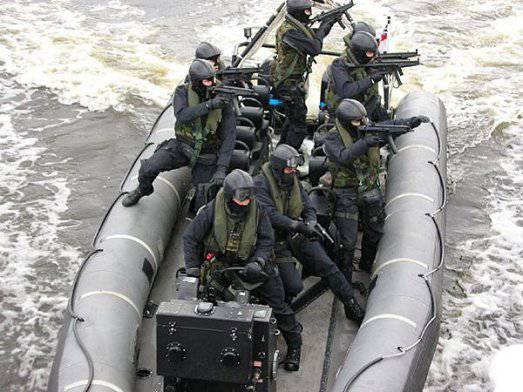
The runway of the Rio Grande airbase is located near the water, as a result of the British submarines throughout the war followed the Argentine aircraft taking off, promptly warning the squadron of air threats. The diesel-electric boat HMS Onyx was the only one who was engaged in planting SBS groups on the Falklands coast - it was not difficult for her to land a similar group on Tierra del Fuego. There is no doubt about the combat training of SBS fighters.
The only catch is the evacuation. The attentive reader must have noticed the regular mention of Chile. It would seem: why should a neutral state intervene in the conflict of “two bald people because of a comb”? Will the Chilean authorities hand over British “war criminals” at the request of Argentina?
Do not give out. And that's why:
Chilean footprint
Despite the horror stories in the style of “The 71% Earth is covered with water”, the land is distributed on the surface of the planet in uniform spots - every time there is a piece of land nearby that is suitable for peace and war. And then, in the 1982 year, Britain found an ally even at the very edge of the earth. Republic of Chile.
To say that relations between Chile and Argentina were strained is to say nothing. The aggravated territorial dispute over the Beagle Channel placed both states on the brink of war. It is no coincidence that in the days of the Falklands conflict, half of the Argentine armed forces stationed on the Argentine-Chilean border.
In such circumstances, the Chileans were guided by the simple rule: "the enemy of my enemy is a friend." Assessing the situation, Pinochet suggested that the UK place combat aircraft in Chile, conveniently close to the borders of Argentina and the Falkland Islands. Great Britain wisely rejected the proposal, stressing that "minimal military success can be leveled by major political complications."
However, the military cooperation of Great Britain and Chile during the Falklands War is not questioned. The British cautiously enjoyed Chilean hospitality, trying not to escalate tensions around this slippery situation.
Aircraft had to be placed outside the continental part of Chile - on the island of San Felix, 3000 km from Tierra del Fuego. From here, the Nimrod R1 ELINT radio intelligence aircraft operated, tracking and intercepting Argentine radio messages in a military conflict zone.
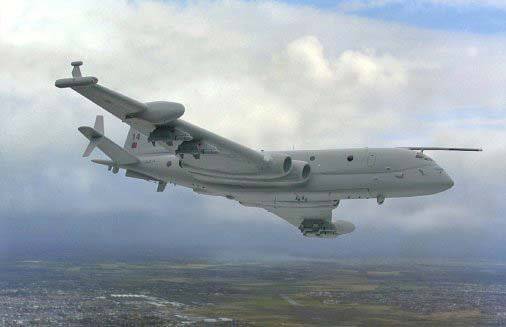
Another interesting story is related to the actions of the intelligence "Canberra" from 39-th Squadron of the Royal Air Force. According to official data, several vehicles of this unit were sent to Chile, but then, for political reasons, the order was canceled, and the aircraft were stuck for a while in Belize (a state in Central America).
The unofficial generally accepted version is as follows: The Canberras urgently received the coloring and identification marks of the Chilean Air Force and redeployed to the Agua Fresca airbase (Punta Arenas). This is the only distinct explanation of the fact that in the spring of 1982, several planes of this type unexpectedly appeared as part of the Air Force of Chile.
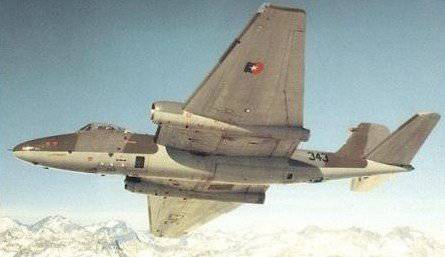
Chilean "Canberra" regularly flew in the direction of Falklands to conduct photo surveys and monitor the situation in the ocean. The Chileans explained these episodes as “testing of new aircraft and the training of pilots of the Chilean Air Force under the guidance of British pilots”. Who really sat in the booths of the scouts, and what did the Canberra do ... as they say, comments are superfluous.
It was thanks to the “Canberram” with Agua Fresco that fresh photographic materials on the situation on the occupied islands lay daily on the table of the British command: the deployment and the number of enemy forces, the results of bombing strikes, the location of fortifications and other important objects (radar, warehouses, anti-aircraft batteries). Perhaps it was to conceal the fact of reconnaissance flights from Chile’s territory that a “duck” was launched in the media about receiving intelligence data from American satellites (although it probably didn’t do without it. However, it wasn’t as big as the press described it).
It is curious that, after the war, the two old British “Canberras” were indeed donated to the Chilean air force - in recognition of their cooperation.
But the most interesting incident related to the Chilean-British collaboration occurred on the night from 17 to 18 in May 1982 of the year:
The Sea King helicopter (b / n ZA290) from the 846 squadron secretly penetrated into Argentine airspace and attempted to land a special forces group in the area of the Rio Grande airbase for reconnaissance as part of the planned Mikado.
The pinwheel was discovered and fired from the ground - the damaged Sea King barely reached Chilean territory, making a hard landing on the beach 11 miles from Punto Arenas. The crew was transferred to the British Embassy in Santiago. The Chilean authorities, as they could, tried to hide the incident, having buried the debris deeper in the sand, alas, the story has become widely known and now local old-timers carry tourists to see the body of a British helicopter.
Finale
Despite the unequivocal end result, each of the parties that took part in the Falkland War had its own “Plan B”: many proposed ways and solutions to neutralize the enemy. The British, frankly, were lucky that Argentina was not very well prepared for the war, at the same time, even the presence of super-weapons in the face of a couple dozen "Exosets" could not guarantee the Argentines victory - the Britons knew how to solve the problem and seriously prepared for such a development events. A good lesson for future generations of the military.
The frightening and mystical operation "Mikado" never took place in reality. While the British special forces were preparing for a raid on the Rio Grande airbase, the Argentines spent all their modest stock of missiles, and the need for a raid disappeared by itself.
Monograph "The Official History of Falklands War" by Sir Lawrens Freedman
http://www.ukserials.com
http://en.mercopress.com
http://www.waronline.org
http://www.spyflight.co.uk
http://www.telegraph.co.uk
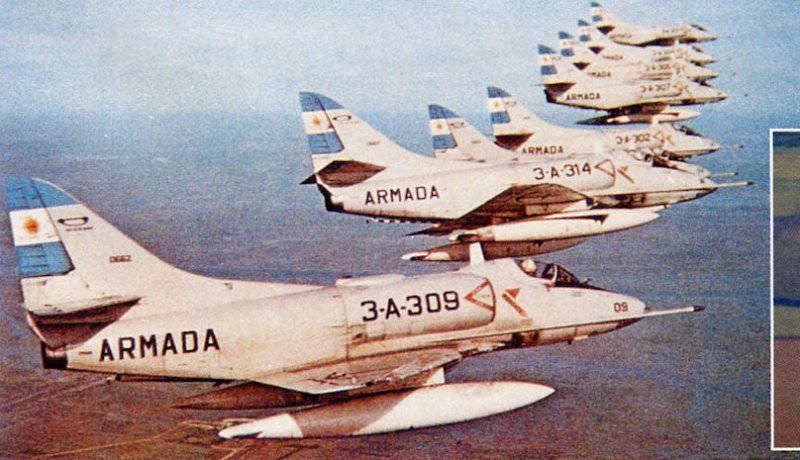

Information